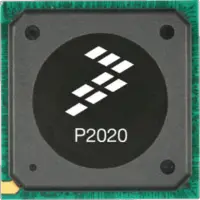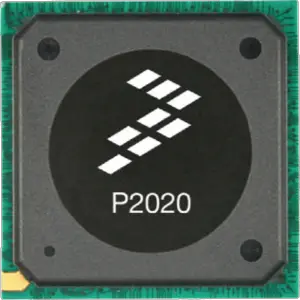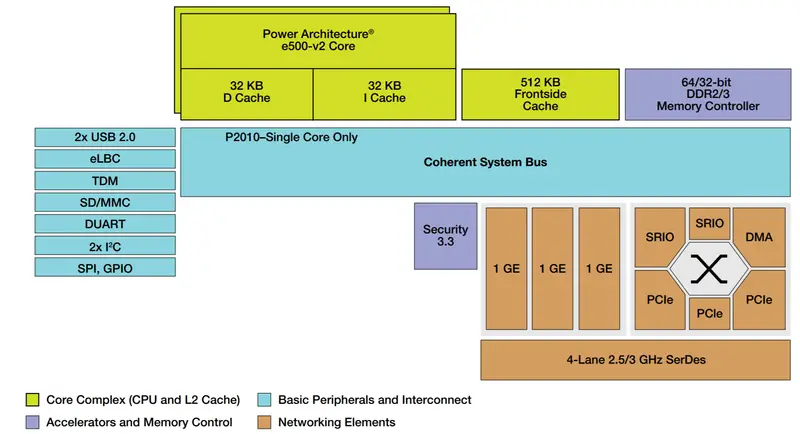From WikiChip
Difference between revisions of "freescale/qoriq/p2010"
m (Bot: moving all {{mpu}} to {{chip}}) |
|||
| Line 1: | Line 1: | ||
{{freescale title|QorIQ P2010}} | {{freescale title|QorIQ P2010}} | ||
| − | {{ | + | {{chip |
|name=P2010 | |name=P2010 | ||
|image=qoriq p2020.png | |image=qoriq p2020.png | ||
Revision as of 15:13, 13 December 2017
| Edit Values | |||||||
| P2010 | |||||||
 | |||||||
| General Info | |||||||
| Designer | Freescale | ||||||
| Manufacturer | IBM | ||||||
| Model Number | P2010 | ||||||
| Market | Networking, Embedded | ||||||
| Introduction | June 16, 2008 (announced) 2009 (launched) | ||||||
| General Specs | |||||||
| Family | QorIQ | ||||||
| Series | P2 | ||||||
| Frequency | 1,200 MHz | ||||||
| Microarchitecture | |||||||
| ISA | Power ISA v2.03 (Power) | ||||||
| Microarchitecture | e500 | ||||||
| Core Name | e500 | ||||||
| Process | 45 nm | ||||||
| Technology | CMOS | ||||||
| Word Size | 32 bit | ||||||
| Cores | 1 | ||||||
| Threads | 1 | ||||||
| Electrical | |||||||
| Power dissipation | 8 W | ||||||
| Tjunction | 0 °C – 125 °C | ||||||
| Packaging | |||||||
| |||||||
QorIQ P2010 is a 32-bit embedded POWER microprocessor introduced by Freescale in 2008. This networking/embedded processor, which is based on the e500 microarchitecture and is fabricated on a 45 nm SOI process, operates at 1.2 GHz and supports 64-bit DDR3-800 memory.
Cache
- Main article: e500 § Cache
|
Cache Organization
Cache is a hardware component containing a relatively small and extremely fast memory designed to speed up the performance of a CPU by preparing ahead of time the data it needs to read from a relatively slower medium such as main memory. The organization and amount of cache can have a large impact on the performance, power consumption, die size, and consequently cost of the IC. Cache is specified by its size, number of sets, associativity, block size, sub-block size, and fetch and write-back policies. Note: All units are in kibibytes and mebibytes. |
|||||||||||||||||||||||||
|
|||||||||||||||||||||||||
Memory controller
|
Integrated Memory Controller
|
||||||||||||||
|
||||||||||||||
Expansions
- 3x 10/100/1000 Eithernet with SGMII
- 3x PCIe 1.0a controllers with 2 SerDes
- 1x USB 2.0
- SD/MMC
- SPI
- 2x I2C
- UART
- SEC 3.1 Security Acceleration
Block Diagram
Documents
Facts about "QorIQ P2010 - Freescale"
| Has subobject "Has subobject" is a predefined property representing a container construct and is provided by Semantic MediaWiki. | QorIQ P2010 - Freescale#package + |
| base frequency | 1,200 MHz (1.2 GHz, 1,200,000 kHz) + |
| core count | 1 + |
| core name | e500 + |
| designer | Freescale + |
| family | QorIQ + |
| first announced | June 16, 2008 + |
| first launched | 2009 + |
| full page name | freescale/qoriq/p2010 + |
| has ecc memory support | true + |
| instance of | microprocessor + |
| isa | Power ISA v2.03 + |
| isa family | Power + |
| l1$ size | 64 KiB (65,536 B, 0.0625 MiB) + |
| l1d$ description | 8-way set associative + |
| l1d$ size | 32 KiB (32,768 B, 0.0313 MiB) + |
| l1i$ description | 8-way set associative + |
| l1i$ size | 32 KiB (32,768 B, 0.0313 MiB) + |
| l2$ description | 8-way set associative + |
| l2$ size | 0.5 MiB (512 KiB, 524,288 B, 4.882812e-4 GiB) + |
| ldate | 2009 + |
| main image |  + + |
| manufacturer | IBM + |
| market segment | Networking + and Embedded + |
| max junction temperature | 398.15 K (125 °C, 257 °F, 716.67 °R) + |
| max memory bandwidth | 5.96 GiB/s (6,103.04 MiB/s, 6.4 GB/s, 6,399.501 MB/s, 0.00582 TiB/s, 0.0064 TB/s) + |
| max memory channels | 1 + |
| microarchitecture | e500 + |
| min junction temperature | 273.15 K (0 °C, 32 °F, 491.67 °R) + |
| model number | P2010 + |
| name | P2010 + |
| package | TE-PBGA-II-689 + |
| power dissipation | 8 W (8,000 mW, 0.0107 hp, 0.008 kW) + |
| process | 45 nm (0.045 μm, 4.5e-5 mm) + |
| series | P2 + |
| supported memory type | DDR3-800 + |
| technology | CMOS + |
| thread count | 1 + |
| word size | 32 bit (4 octets, 8 nibbles) + |
